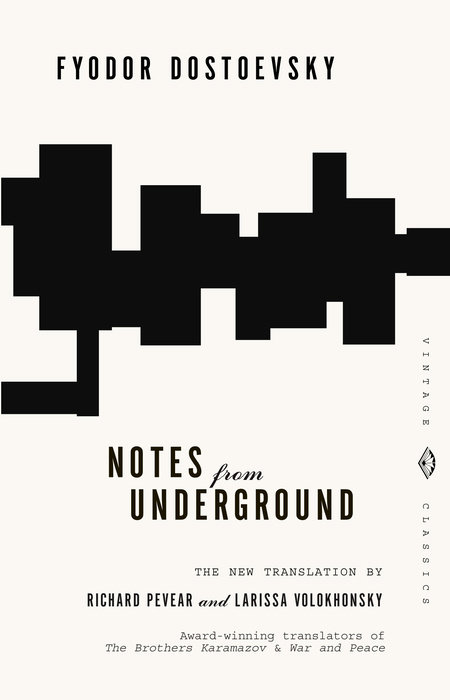
2 stars
First Sentence: I am a sick man…I am a spiteful man.
Thoughts: You know how sometimes when you’re reading a book you’ll get a song stuck in your head? That happened as I was reading Notes from Underground. As the narrator went on and on about his life and beliefs I kept thinking of this song:
Nobody likes me
Everybody hates me
I guess I’ll go eat worms
The narrator of this novella hates himself and did his damnedest to make sure everyone else hates him too. The first half of the story is him using this technique on us, the readers. He went on a rant about how much the whole world sucked and how much he hated it before going to a flashback to explain how he ended up scribbling notes in a basement.
Twenty years earlier the narrator was able to go out in public and at least appear to be a functioning member of society. He hated everyone even then, mostly for no reason but a psychologist would detect deep feelings of inadequacy that he was trying (badly) to cover up. I guess that’s why this is called a psychological novel. You’d need years of training that field to uncover all the problems this guy has. National Geographic nothing, The Times of London is in awe of all his issues.
We are treated to a long interlude about a particular soldier Narrator hated. He noticed when the soldier walked down the street, people got out of his way due to his commanding posture and purposeful bearing. Narrator decided to heck with this guy, he wasn’t going to get out of his way anymore. In fact he was going to bump into him in the street on purpose! That’ll show him! Who does he think he is, having confidence like that? Narrator puts his Cunning Plan into action: he goes into debt buying a new fur collar for his coat and a new hat so the soldier, who doesn’t know Narrator from Adam’s house cat, won’t recognize him. Then he bumps into him. The soldier barely notices him and goes on his way. Why that little so-and-so, sputters Narrator.
In another story, he tells about the time he invited himself to a party for a former schoolmate who got a promotion. He didn’t like this schoolmate and vice versa, but since he happened to be in the room when a couple of Schoolmate’s friends were discussing the party he decided that he was going to go too. He showed up an hour early and then spent the rest of the evening pacing back and forth across the room while everyone else ignored him. When they left, Narrator followed them to a House of Ill Repute where he spent the night with a prostitute who really deserved better. The rest of the book is Narrator degrading the prostitute and making her cry.
Clearly Dostoevsky was not in a good place when he wrote this. Fyodor, honey, are you okay? I know your wife was dying when you were working on this story. I know that’s rough. Do you need me to bring over a casserole and a sympathetic ear? Seriously, I’m worried about you a hundred and sixty years in the future.
